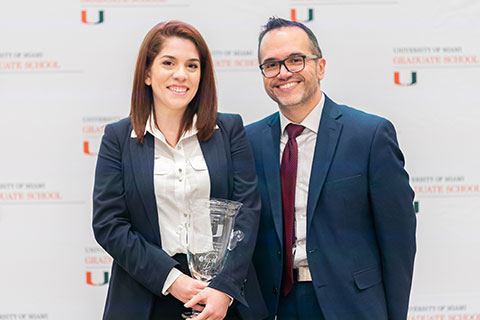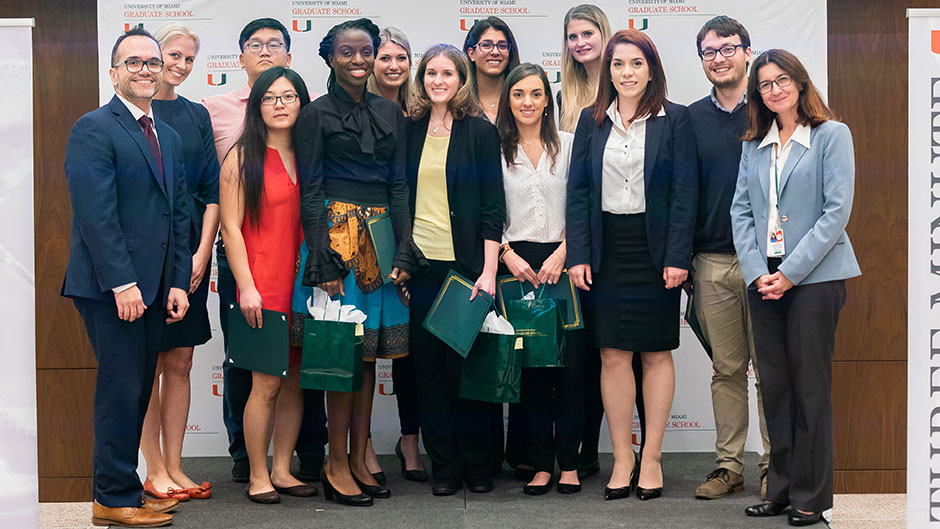The Perito Moreno Glacier in Argentina moves at least two meters per day from heavy snowfall and melting.
With the threat of climate change looming, University of Miami School of Architecture master’s candidate Konstantina Kritharidou set out to create a structure that could sit on a glacier and adapt to its movement. Her design concept — of an observatory building that can extend and contract as needed — became Kritharidou’s thesis project, and her succinct explanation of it helped the master’s candidate win first place in the Graduate School’s third annual Three Minute Thesis Competition last week.
“Environmental changes are forcing us to look back in history and study buildings that are able to transform,” said the Greek native. “This will encourage future developments to consider the transformable aspects of their structures.”

As a result of Kritharidou’s victory, the School of Architecture will house the competition’s crystal vase trophy for the next year and Kritharidou was able to take home a $500 reward. Runner-up Viviane Machado Andrade, a Ph.D. candidate in the Miller School of Medicine, found a new cell population called macrophages that hide HIV in the body, which may offer insight about how the virus can be cured. She won a $250 reward for her presentation. And both Andrade and Engineering Ph.D. candidate Thomas Cadenazzi won the People’s Choice awards, determined by the audience through an online poll during the event. Cadenazzi completed a one-year case study of the Halls River Bridge in Homosassa, Florida, which was built to withstand a host of environmental conditions because it contains non-corrosive materials.
Students were judged using criteria set by the University of Queensland in Australia, which founded the first Three Minute Thesis Competition in 2008. The categories include comprehension and content of the presentation, as well as audience engagement and communication. Judges for the event were UM’s executive vice president for academic affairs and Provost Jeffrey Duerk, as well as Lourdes Dieck-Assad, vice president for hemispheric and global affairs, and Rebecca MacMillan Fox, dean of UM’s Division of Continuing and International Education.
Graduate School Dean Guillermo "Willy" Prado said he was pleased that this year the competition included the largest number of competitors yet, with 10 phenomenal contestants from nearly every school and college at UM. Part of the challenge is sharing years of research in such a short time span, but it is useful because it forces students to work on communicating their research easily, he added.
“The event represents the very best of UM — our students,” Prado said. “We wish the winners the best of luck as they represent UM in the state competition.”

